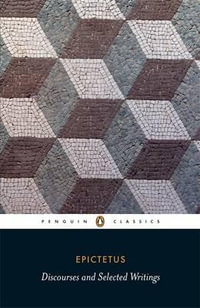The Roman Empire was an achievement of startling proportions. In its size alone, it extended from the Atlantic to the Euphrates and from the Rhine to Danube all the way to the Sahara. In many ways, as the global question of emerging national identities persists, and attempts at multinational unity fail, Rome's vast empire becomes an extremely relevant historical lesson. In "The Antonines," the eminent historian of classical history, Michael Grant, examines the vital role played by the Antonines in the development and expansion of the Roman Empire. He surveys that period's renowned contributions to the arts, discussing at length Marcus Aurelius's "Meditations," perhaps one of the greatest literary products of the classical world. He suggests that the Antonines occasioned a major transition in Roman life politics, and that the period over which they presided witnessed extraordinary changes that heralded a new epoch to many. The Antonines, he argues, were singularly responsible for ushering the Roman Empire from the ancient world to the early Medieval.
Grant examines the political dynamics that brought about these changes, analyzing such issues as the role of "adoption" (the policy of choosing Emperors who were not direct descendants of the throne). He profiles the individuals who made up the Antonines: of Antoninus Pius, an altogether understudied figure, who curiously bequeathed his position to two men particularly unfit to rule his vast and efficacious regime; Marcus Aurelius, an avid militarist who could oddly find the time to write one of the best works of Roman literature known to date; Commodus and his abandonment of imperial ambitions in what is presently Germany and the implications it had on the decline of the Empire, as well as his emphasis on monotheism within the terms of Roman religion.
Grant's historical analysis provides a thorough and, above all, high-minded look at this often neglected yet critical period in the Roman Empire--a period that not only illuminates the processes of dramatic transformation, but presents a point of comparison to the current historical circumstance as well.
Industry Reviews
"Michael Grant is one of a few historians who keeps the flame of ancient history alive. Grant's books on the Greek and Romans are partly narrative, yet strong with insight, written in a style that has a grandeur to it worthy of the important events described. In this fine new book, he concentrates on the later Roman emperors known as the Antonines, who reigned in the 2nd century after Christ--and he eloquently fixes what was important in the period."
-"Newark Star-Ledger
"The prolific Grant, from whom last issued "Constantine the Great, here summarizes the careers of three mid-second century emperors and the surviving works of a dozen contemporary writers. Coming after the active reigns of Trajan and Hadrian, who brought the Roman Empire to its greatest territorial extent and left walls and columns testifying to the apogee of expansion, the Antonines--Antoninus Pius, Marcus Aurelius, and Commodus--projected a policy of stability."
-"Booklist
"The distinguished, prolific, classical historian ("Constantine the Great, p.681, etc.) here critically examines the reigns of the Roman Empire's three Antonine emporers (A.D. 138-192)...With characteristic lucidity, Grant shows that Rome during its vaunted "golden age" contained seeds of its future collapse and of the Europe to come."
-"Kirkus Reviews
"This book will be of greatest value for advanced undergraduates who need a trustworthy guide to a complex range of information. Grant provides a highly selective chronological table of important events, five pages of useful maps, and a separate discussion of several historical sources of the late second and third centuries whose work sheds light on the Antonine Age. Abibliography of more than five pages lists important modern sources in four languages."
-"The Historian
"This book will be of greatest value for advanced undergraduates who need a trustworthy guide to a complex range of information. Grant provides a highly selective chronological table of important events, five pages of useful maps, and a separate discussion of several historical sources of the late second and third centuries whose work sheds light on the Antonine Age. A bibliography of more than five pages lists important modern sources in four languages."
-"The Historian























